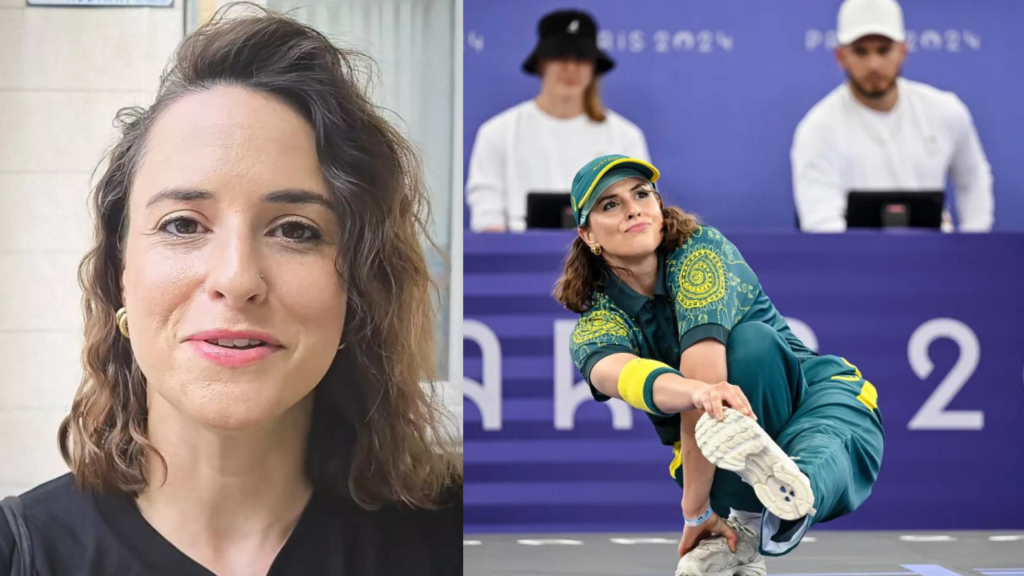The life of an Olympian is often seen as glamorous, filled with victories and accolades. Yet, beneath the shining medals lies a darker side to fame—the harsh reality of online hate. In a world where social media allows instant access to public figures, athletes are increasingly facing toxic online environments. For one particular Olympian, this reality has been nothing short of devastating.
Table of Contents
The Unseen Struggles Behind the Medals
Competing at the highest level of sports demands not only physical prowess but also immense mental strength. Olympians dedicate years, often decades, to perfecting their craft. However, the journey to the podium is not without its challenges. Online hate has become a significant burden for athletes, threatening their mental well-being and, in some cases, their careers.
The Olympian at the center of this story has spoken candidly about the emotional toll that online harassment has taken on them. Despite their remarkable achievements, the constant barrage of negativity has overshadowed their successes. This situation sheds light on a critical issue that many athletes face but rarely discuss openly.
The Impact of Social Media on Athletes

Social media platforms have revolutionized the way we connect and communicate. For athletes, these platforms offer a direct line to their fans, providing an opportunity to share their journey, celebrate victories, and inspire others. However, the flip side of this accessibility is the exposure to unfiltered criticism and hate speech.
The Olympian in question has experienced firsthand the dark side of social media. They have received countless messages filled with vitriol, questioning their abilities, appearance, and even their right to compete. Such comments are not only hurtful but also deeply damaging to an athlete’s self-esteem.
In a recent interview, the Olympian revealed that the weight of online hate has been “devastating.” They described how the relentless negativity has made it difficult to focus on their training and performance. This admission highlights the profound impact that social media can have on an athlete’s mental health.
The Psychological Toll of Online Harassment

Online harassment is not a new phenomenon, but its effects on mental health are becoming increasingly apparent. For athletes, who are already under immense pressure to perform, the added stress of dealing with online hate can be overwhelming. The Olympian’s experience is a stark reminder of the psychological toll that online harassment can take.
Mental health professionals have noted that cyberbullying and online harassment can lead to anxiety, depression, and even suicidal thoughts. Athletes, who often pride themselves on their resilience, may be particularly vulnerable to these effects. The pressure to maintain a strong public image can prevent them from seeking help or speaking out about their struggles.
In the case of this Olympian, the fear of being perceived as “weak” or “ungrateful” has compounded their suffering. Despite their outward success, they have been battling an internal struggle that few people understand. Their courage in speaking out is a powerful step towards breaking the stigma surrounding mental health in sports.
Support Systems and the Need for Change
While online platforms have policies in place to combat hate speech, enforcement is often inconsistent. This leaves athletes vulnerable to continuous attacks. The Olympian’s story underscores the urgent need for stronger protections and support systems for public figures who are targeted online.
Several organizations and advocacy groups have called for more robust measures to address online harassment. These include stricter regulations for social media platforms, better mental health resources for athletes, and increased public awareness of the issue. The goal is to create an environment where athletes can thrive without the constant threat of online hate.
The Olympian’s experience also highlights the importance of having a strong support network. Friends, family, coaches, and mental health professionals can provide the emotional support needed to navigate the challenges of online harassment. For this athlete, leaning on their support system has been crucial in managing the impact of online hate.
Addressing Online Hate in Sports
The story of this Olympian is a wake-up call for the sports community and society at large. Online hate is not just a personal issue; it is a systemic problem that affects the well-being of athletes around the world. Addressing this issue requires collective action from social media platforms, sports organizations, and fans.
As fans, we must recognize the power of our words and the impact they can have on others. It is essential to foster a culture of positivity and respect, both online and offline. Supporting athletes means celebrating their achievements while also acknowledging their humanity.
For social media companies, there is a responsibility to create safer online spaces. This includes implementing more effective reporting mechanisms, enhancing content moderation, and holding users accountable for their actions. Athletes should be able to engage with their fans without fear of harassment.
Sports organizations also have a role to play in protecting their athletes. This includes providing mental health resources, promoting awareness of online harassment, and advocating for stronger protections on social media platforms. By taking proactive steps, these organizations can help create a safer environment for athletes to compete and thrive.
Conclusion
The experience of this Olympian serves as a poignant reminder of the challenges that public figures face in the digital age. Online hate has become a pervasive issue, with far-reaching consequences for mental health and well-being. By speaking out, this athlete has taken a brave step towards raising awareness and advocating for change.
As a society, we must stand against online harassment and support those who are affected by it. Whether through policy changes, advocacy, or simply treating others with kindness, we all have a role to play in creating a more positive and respectful online community.
